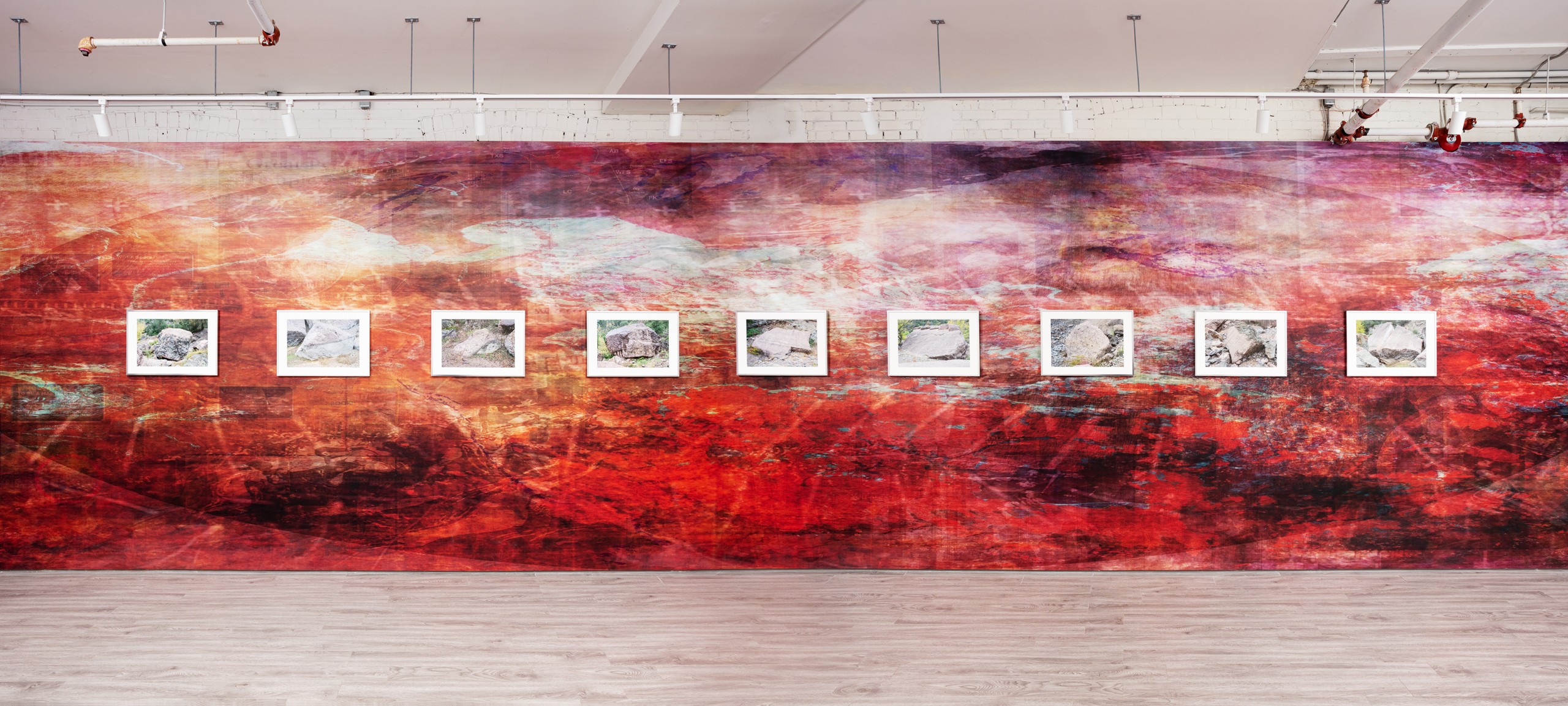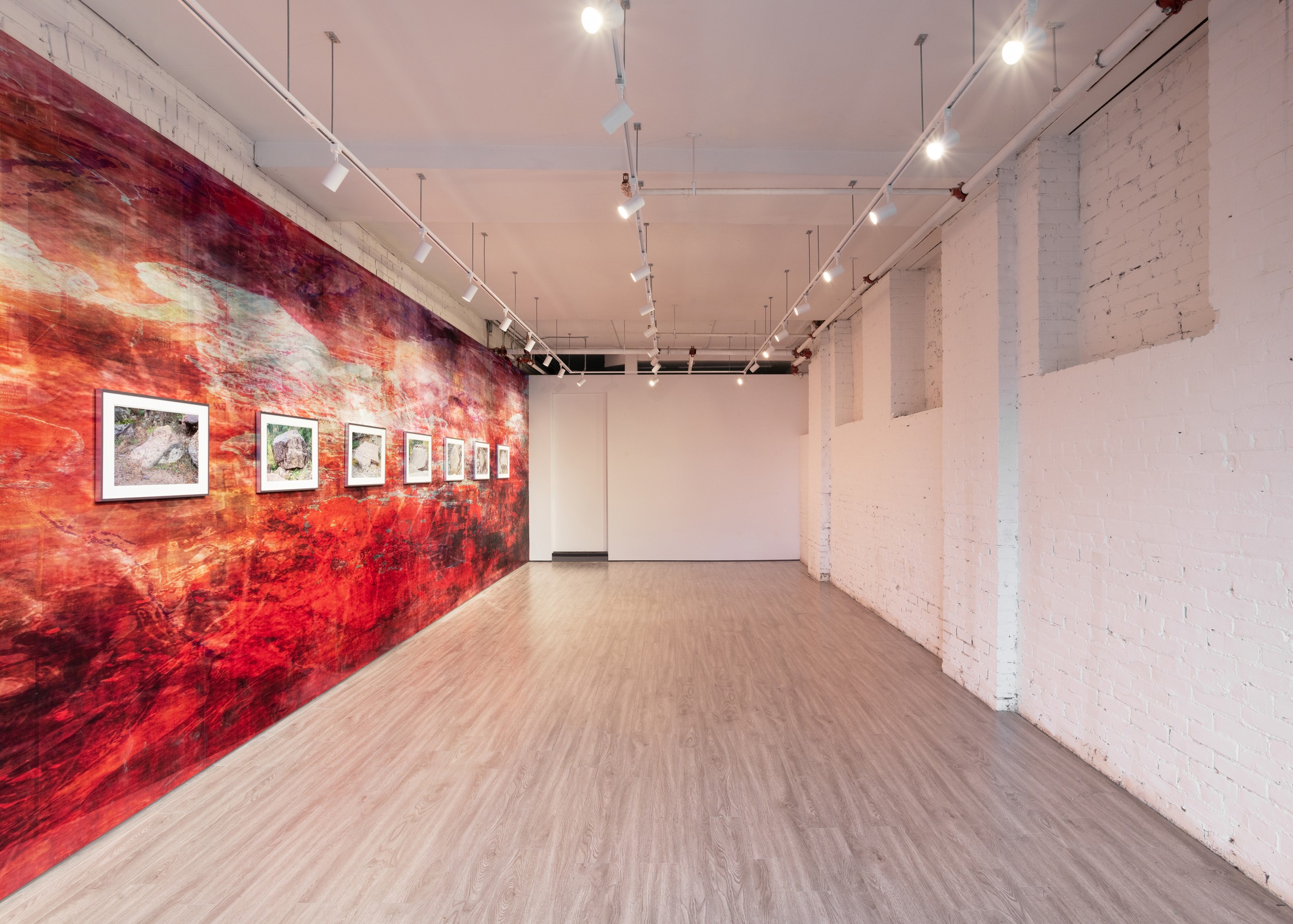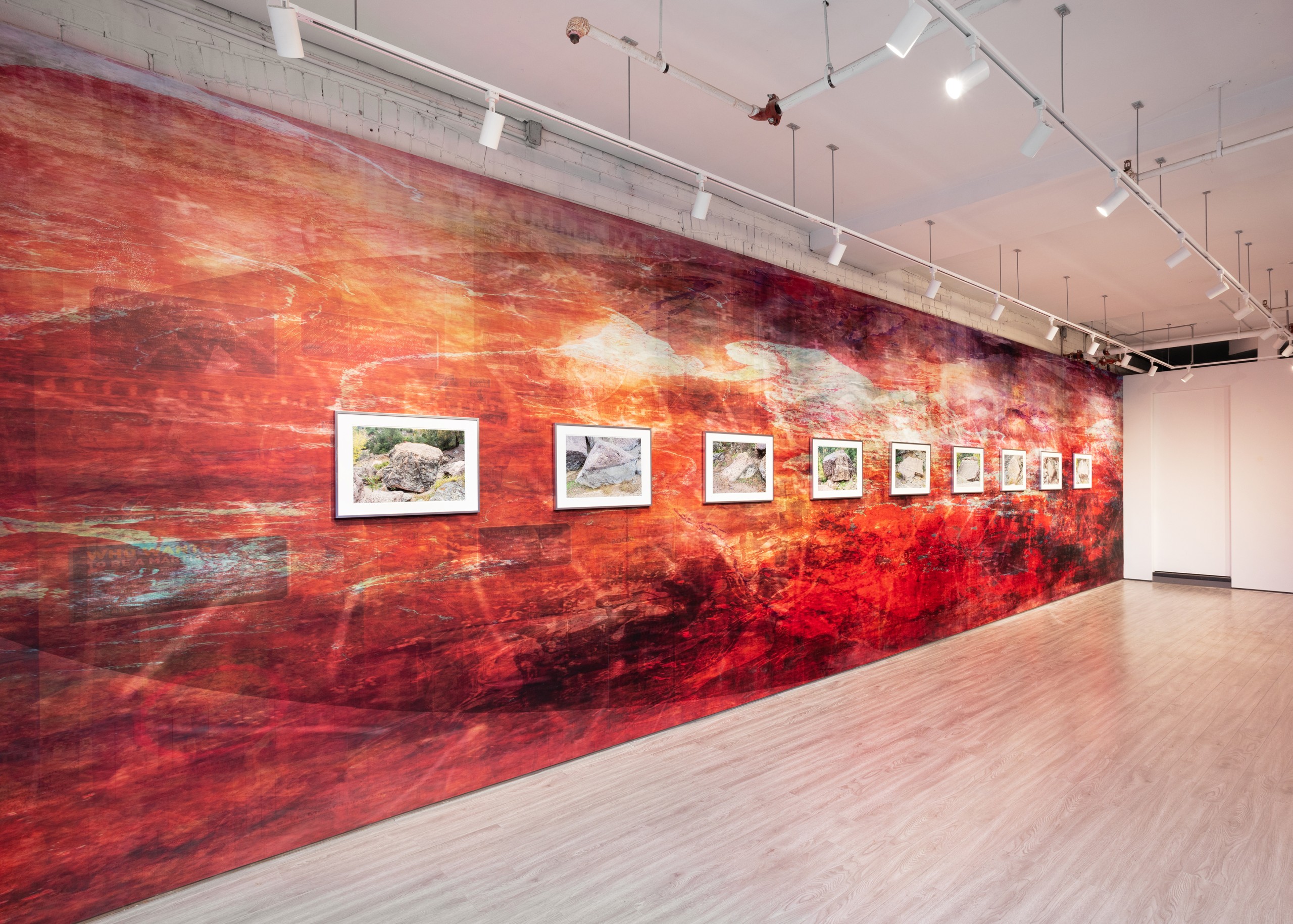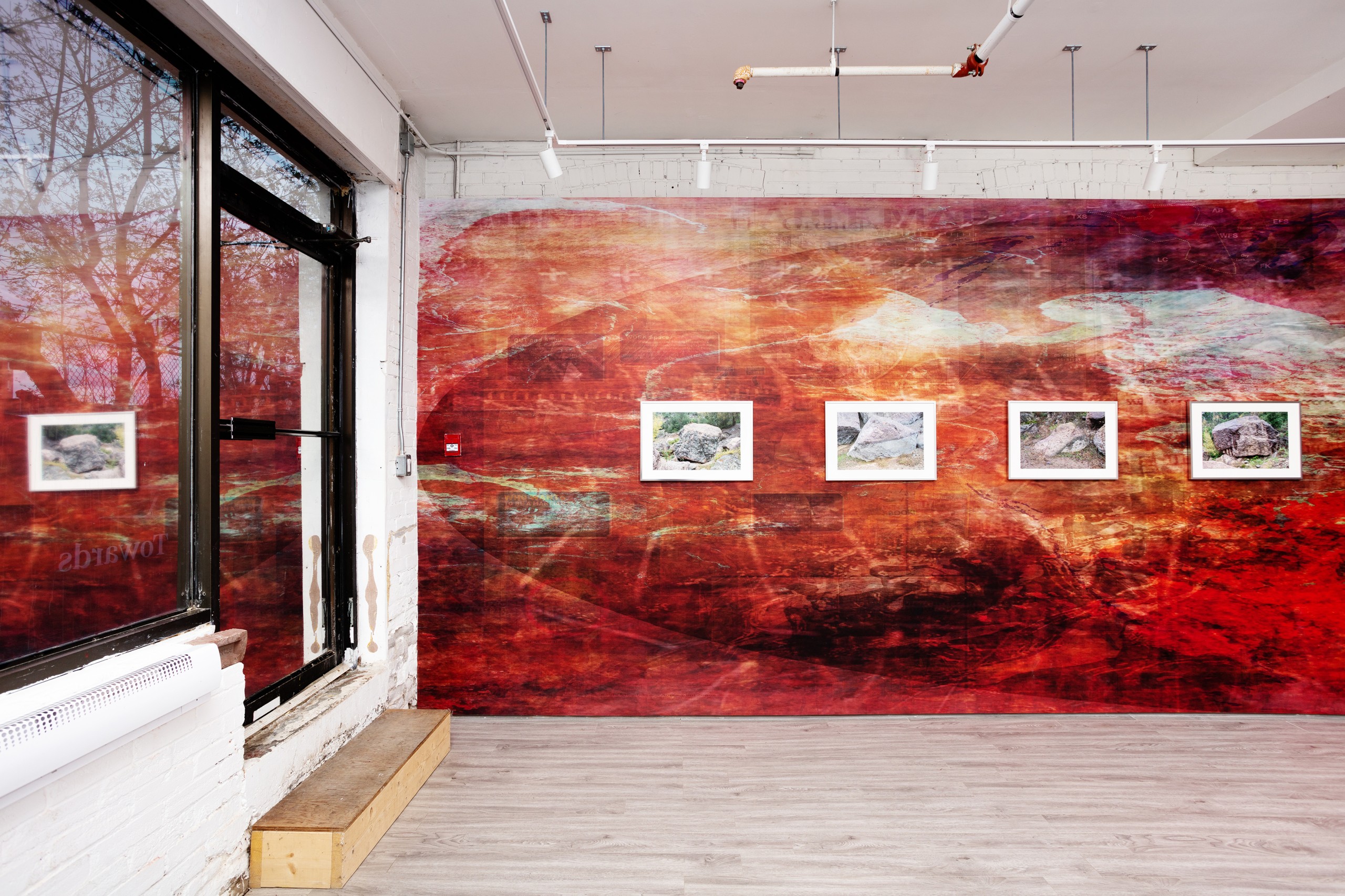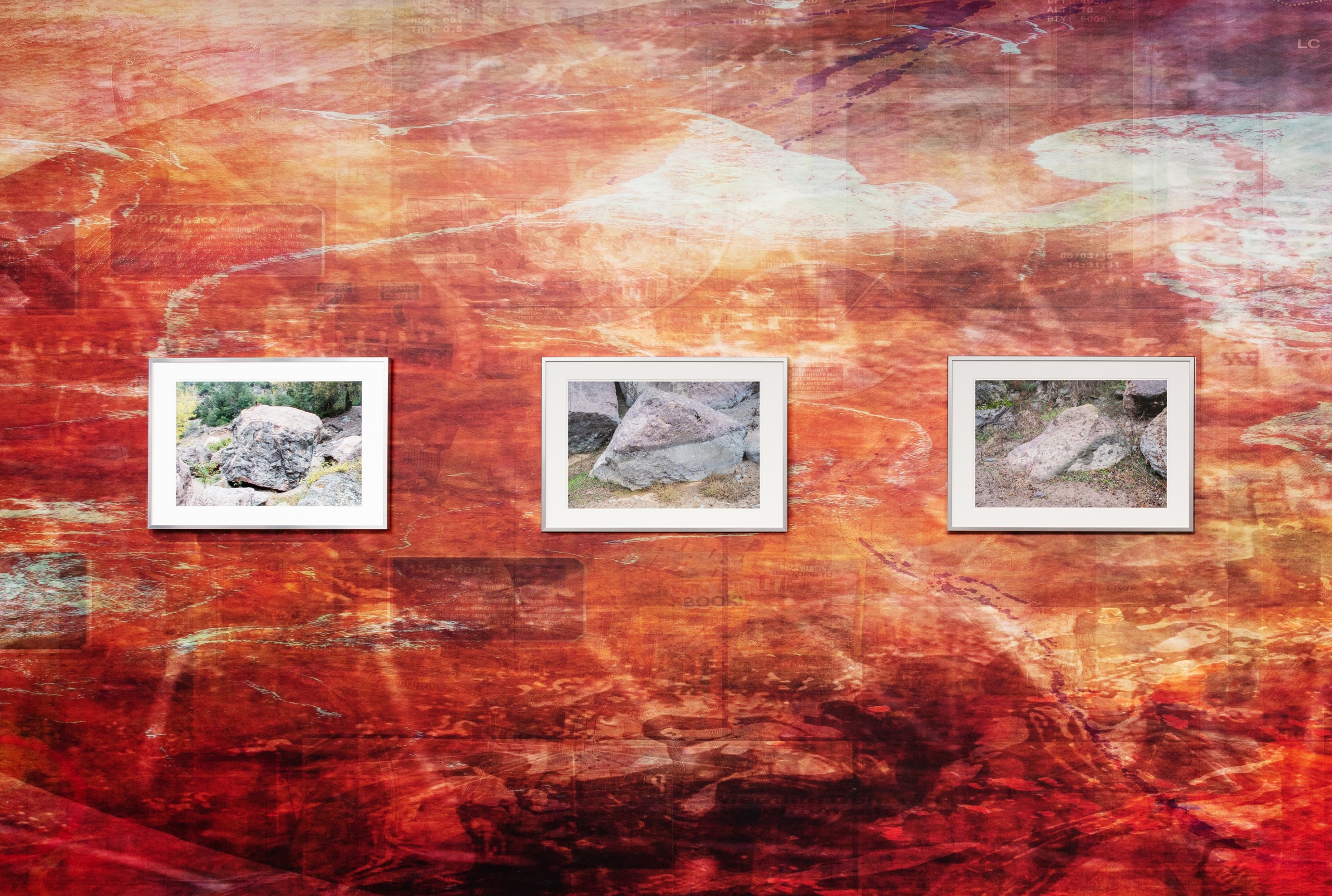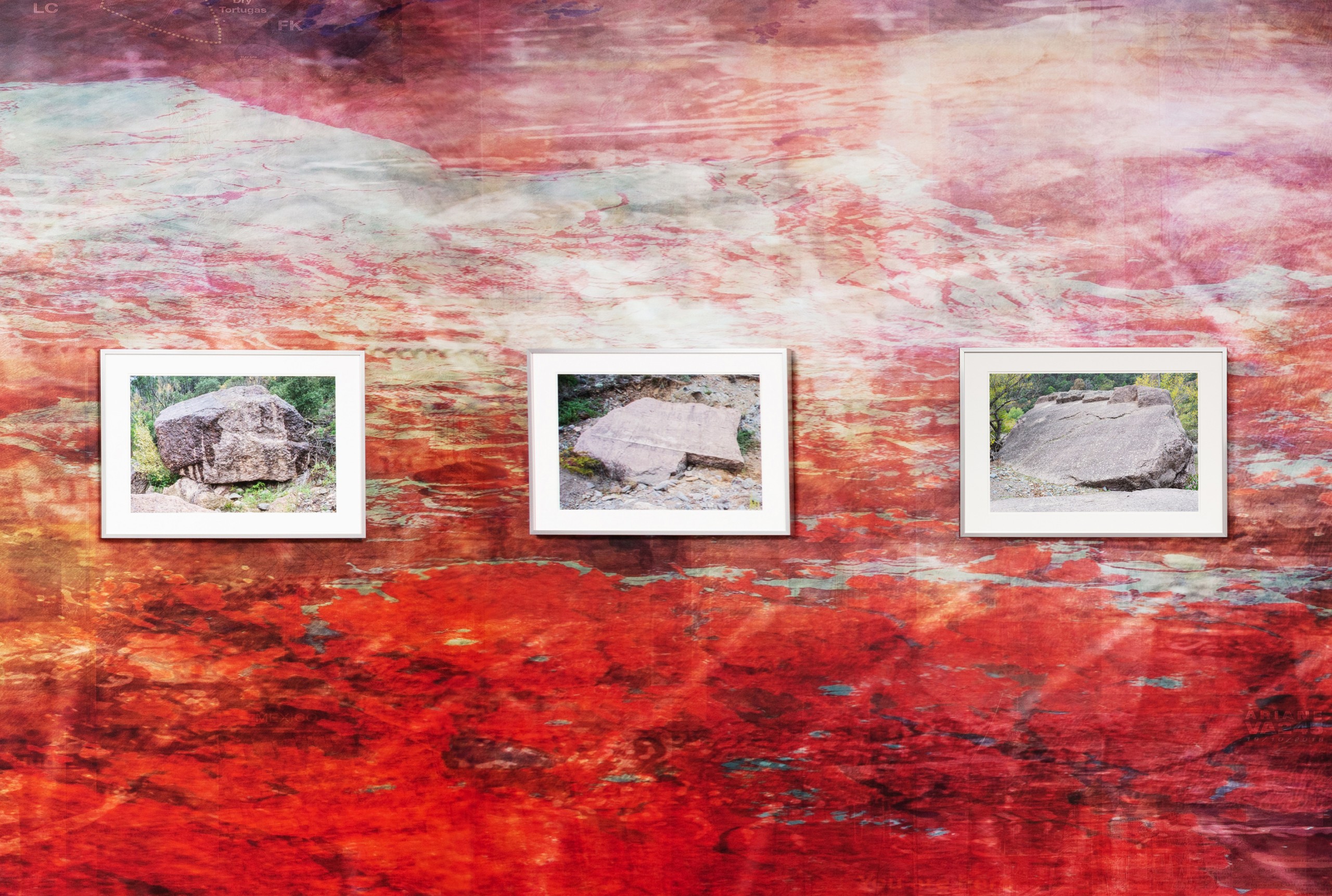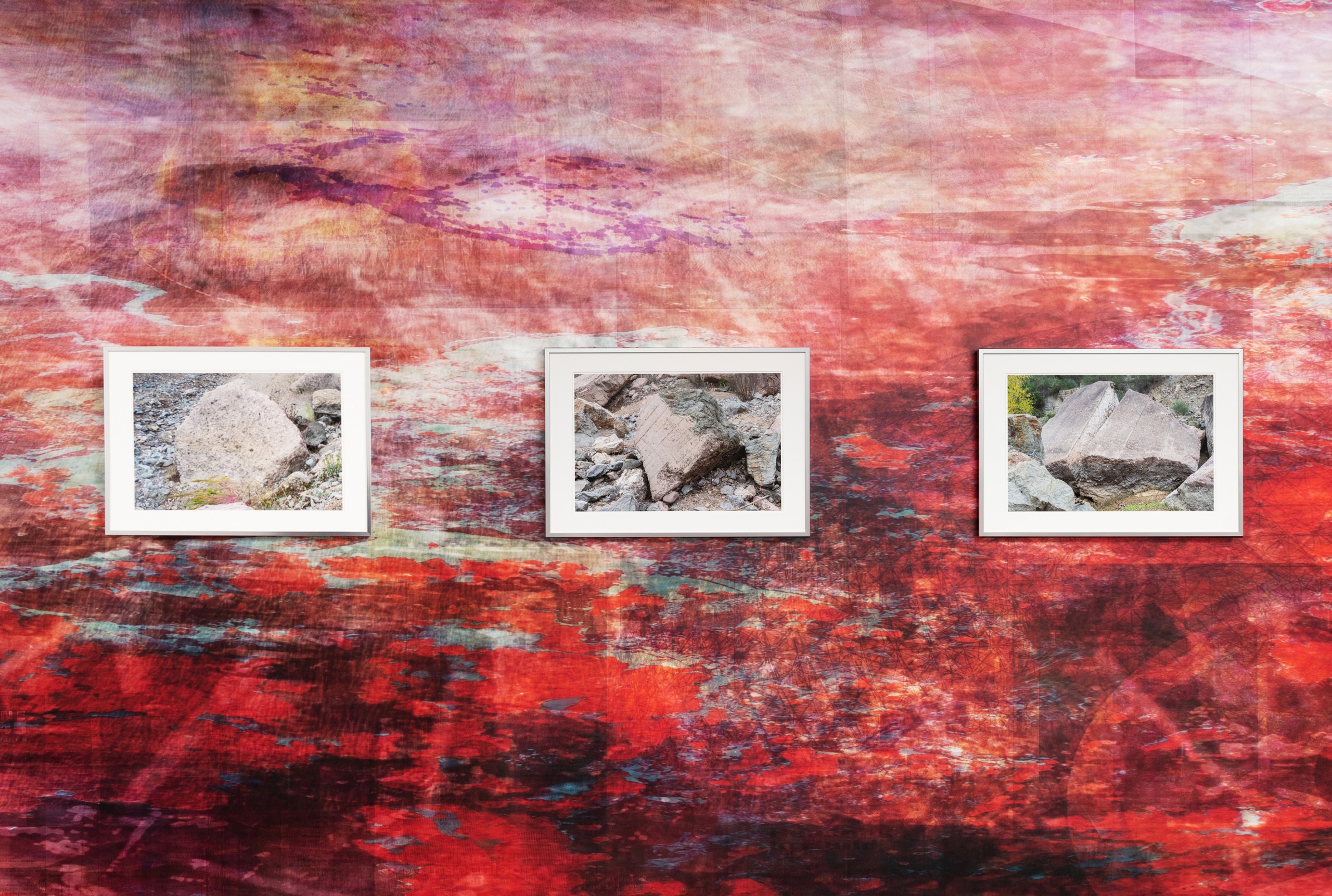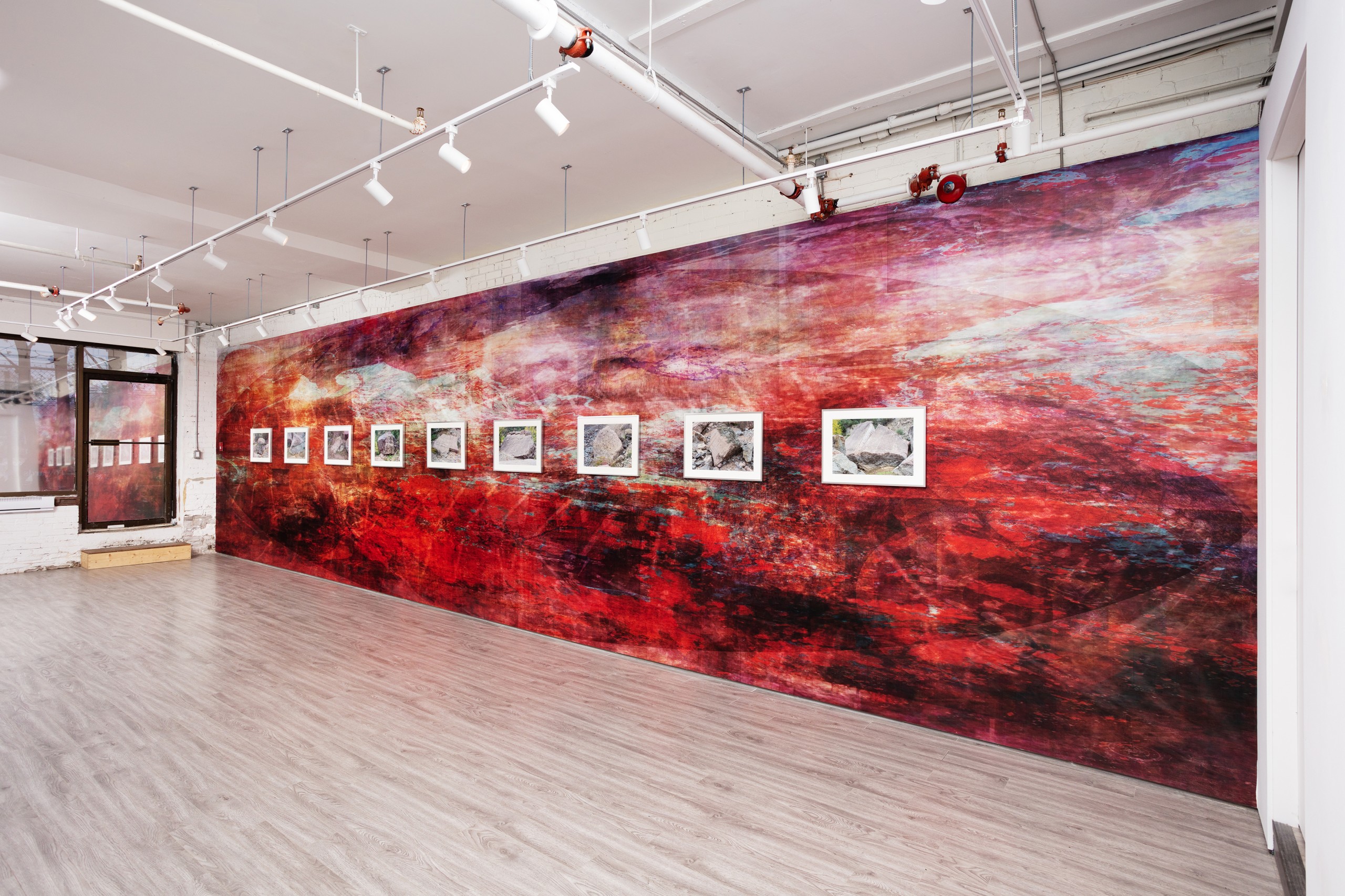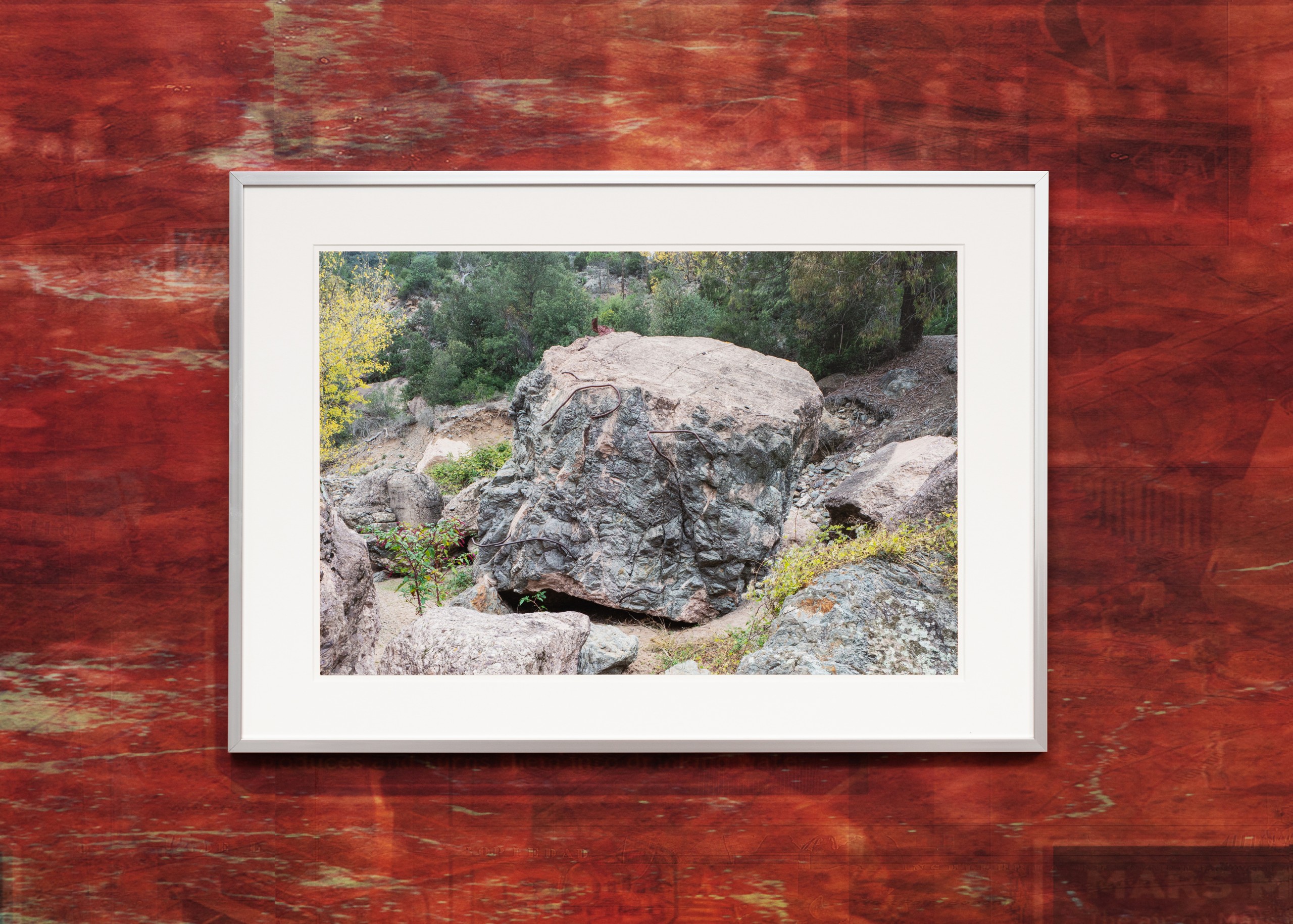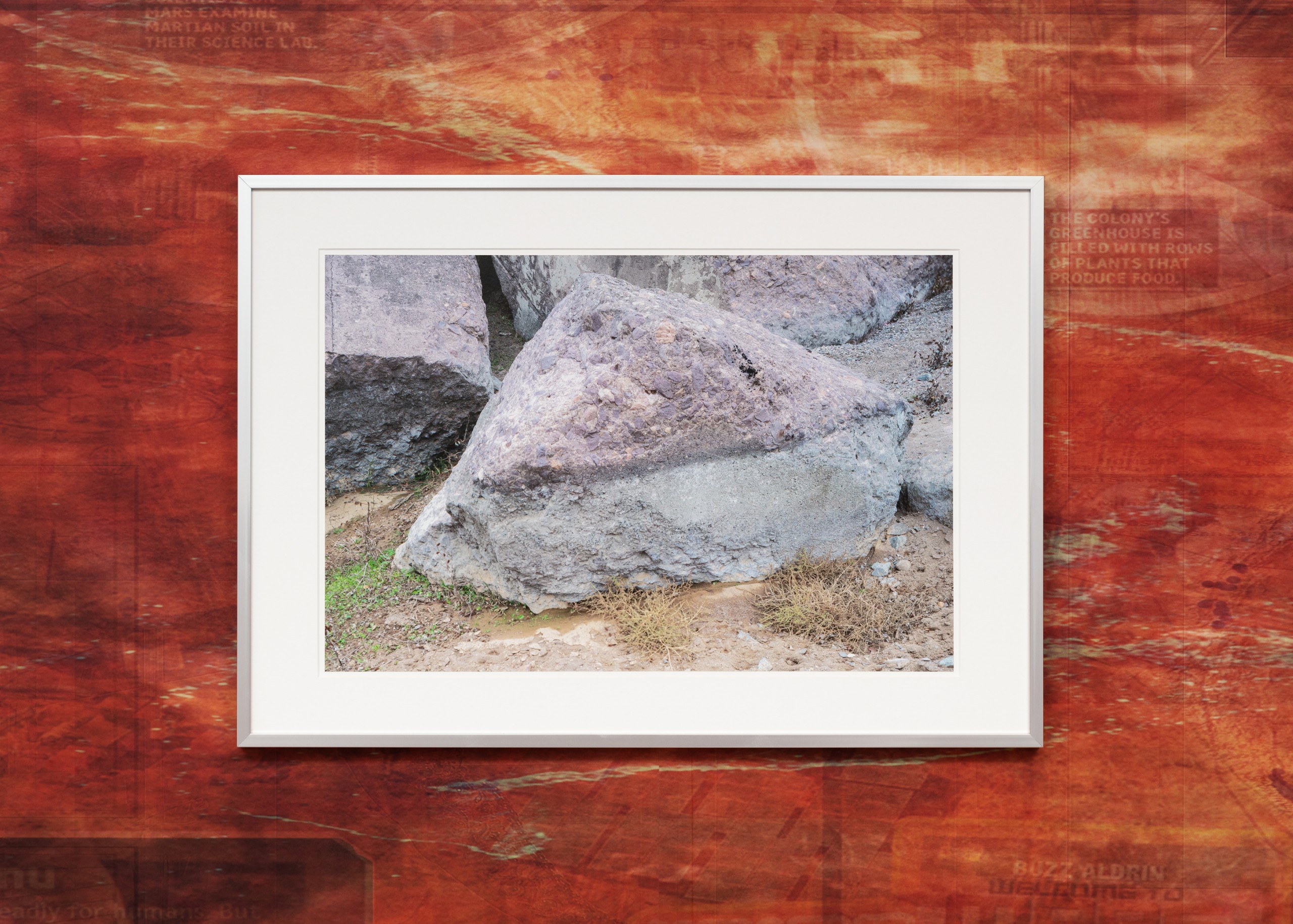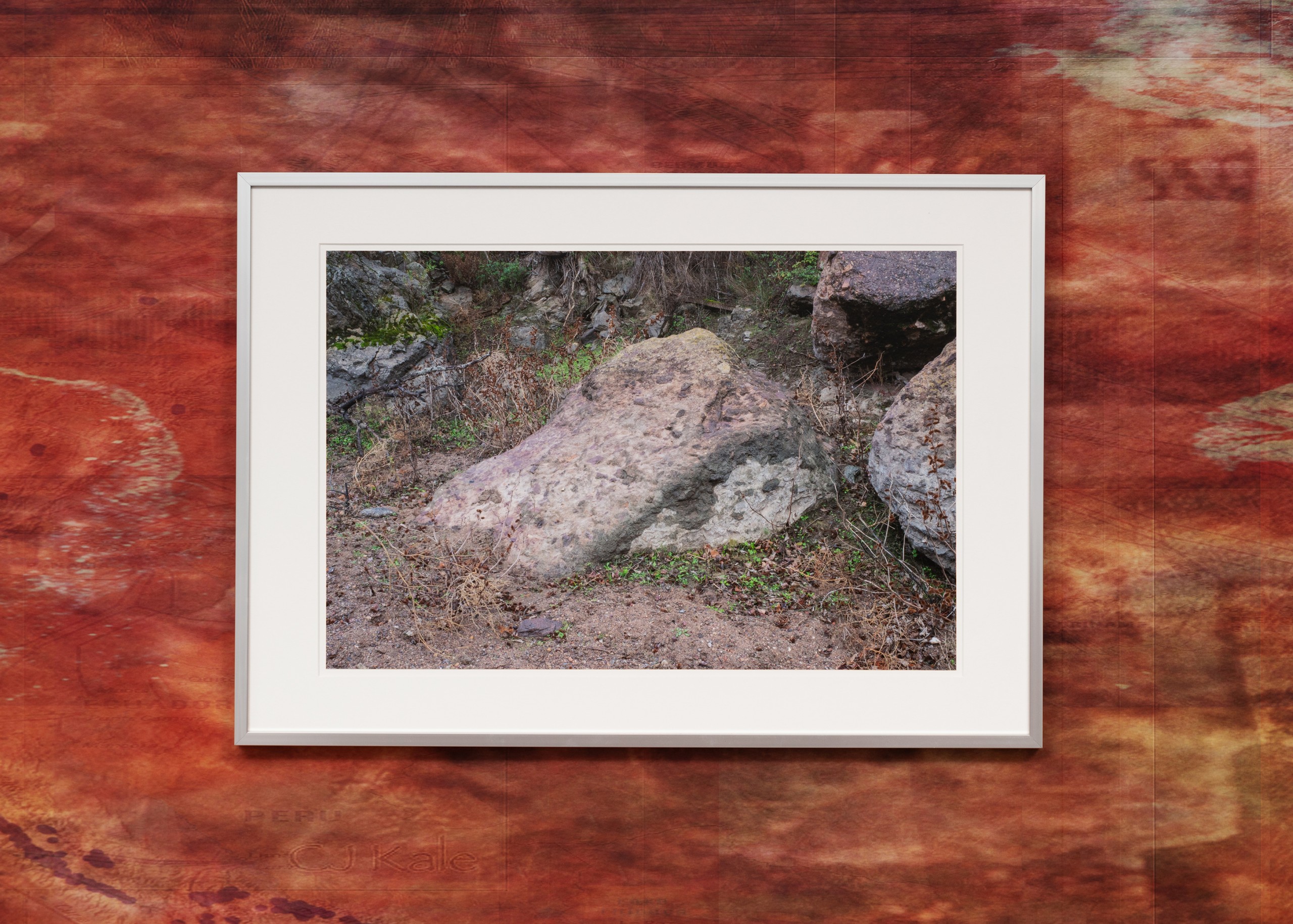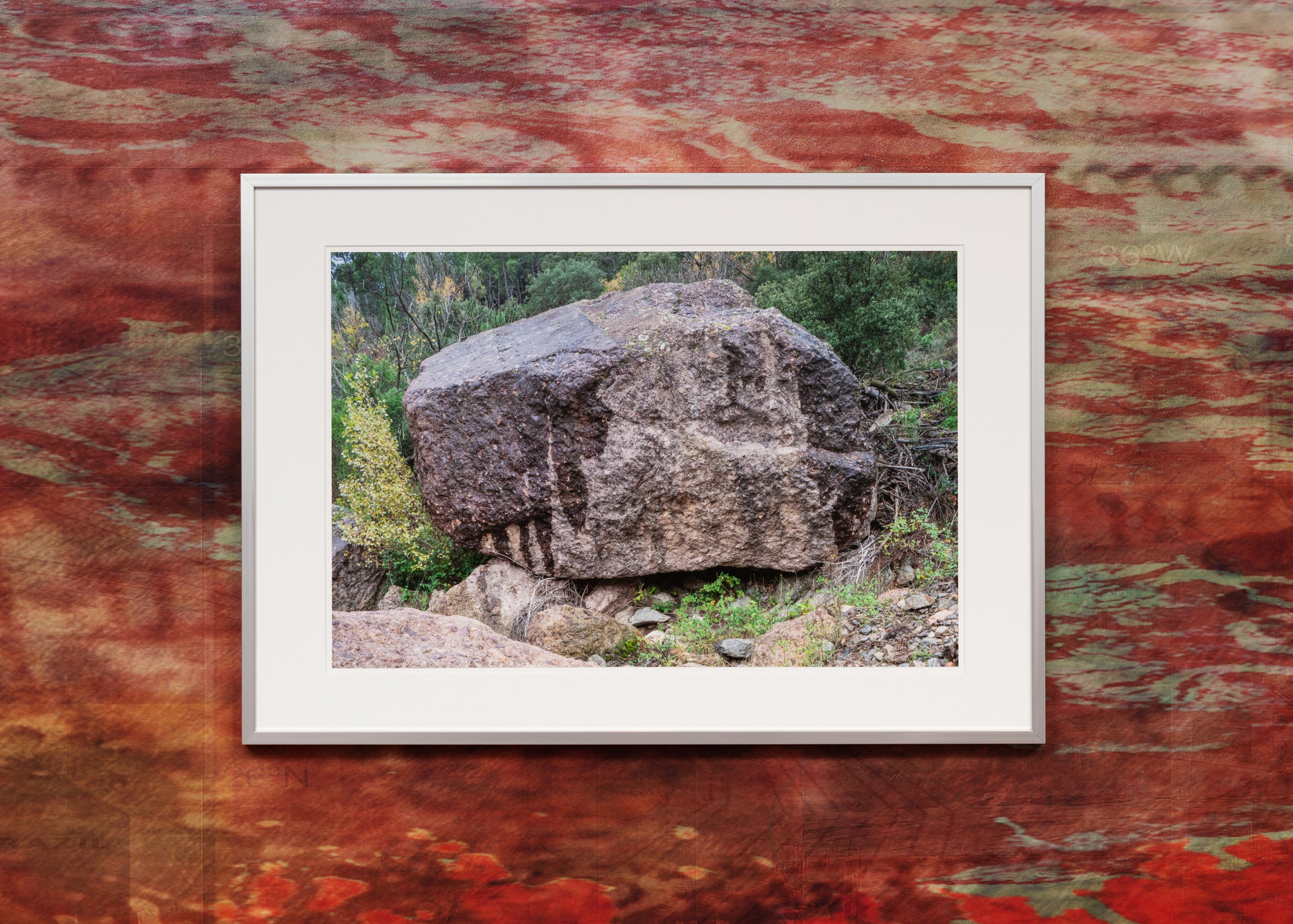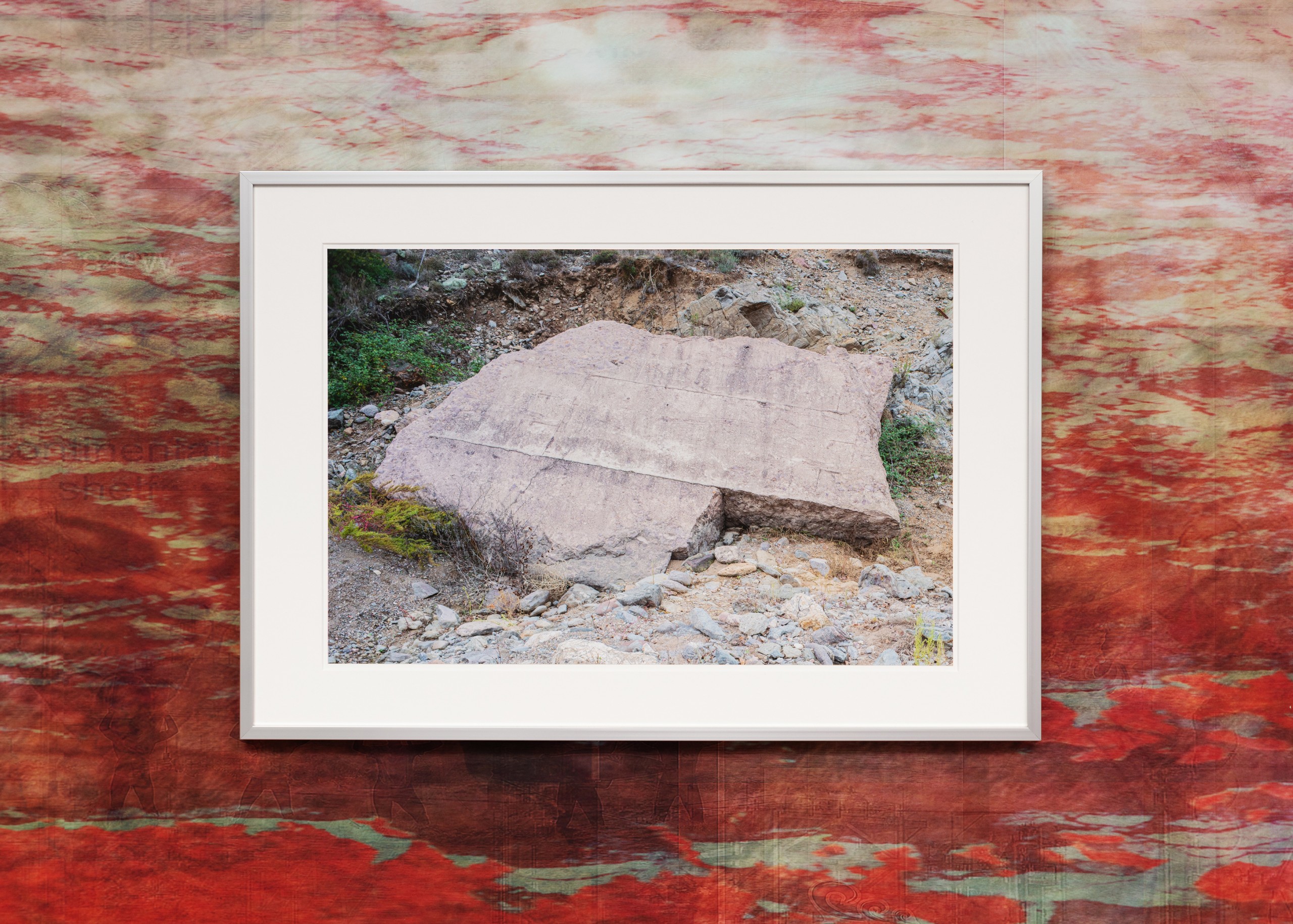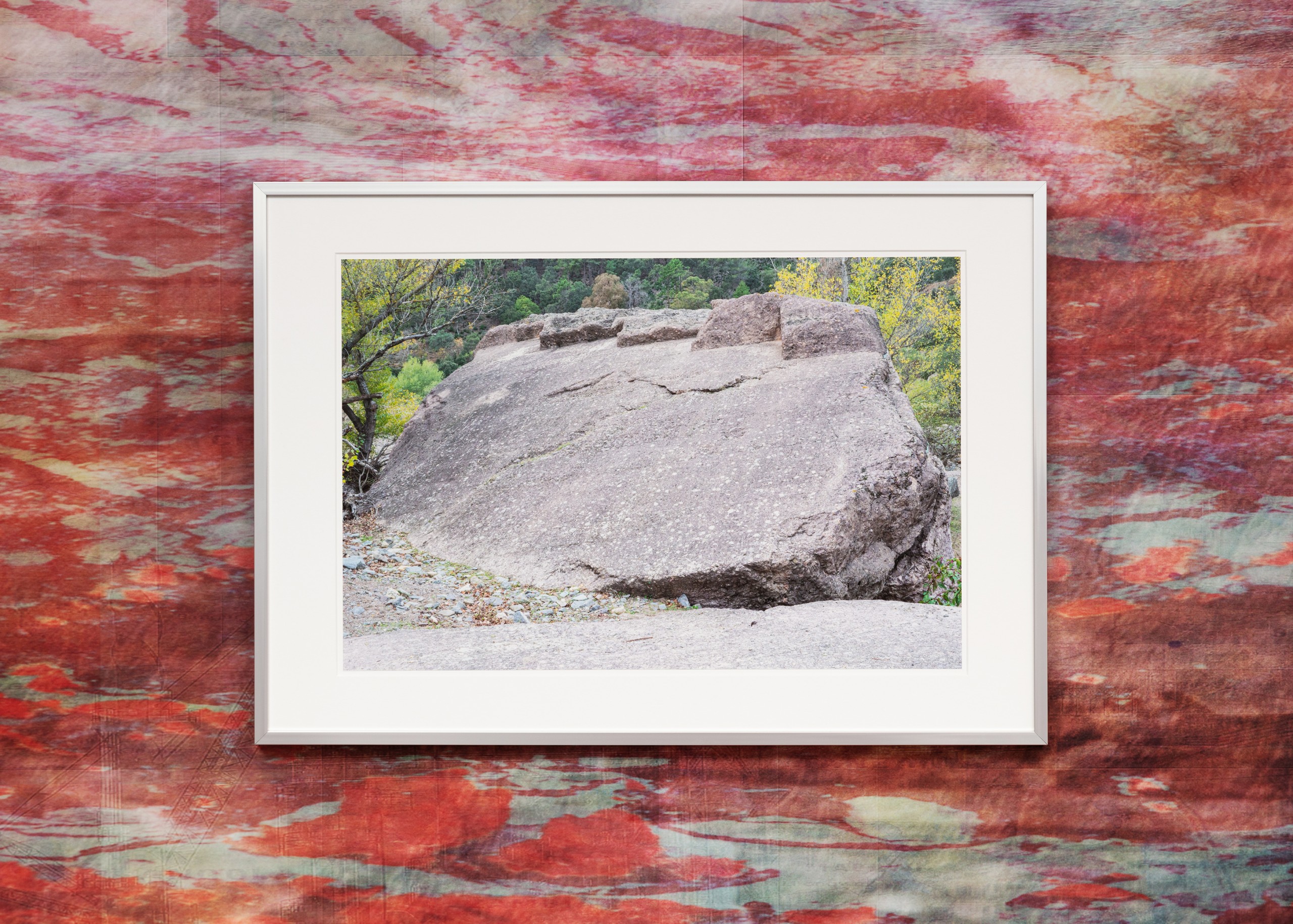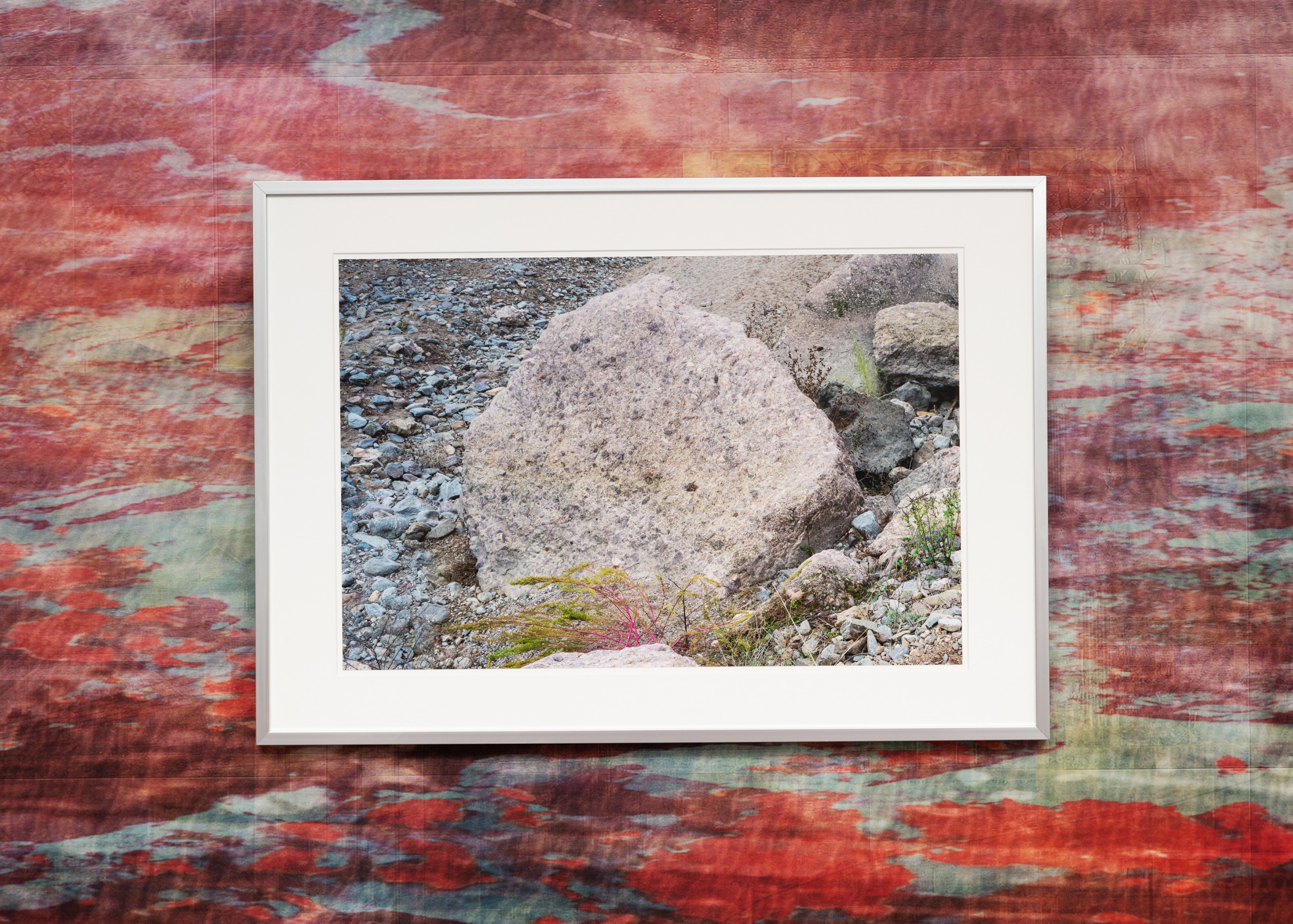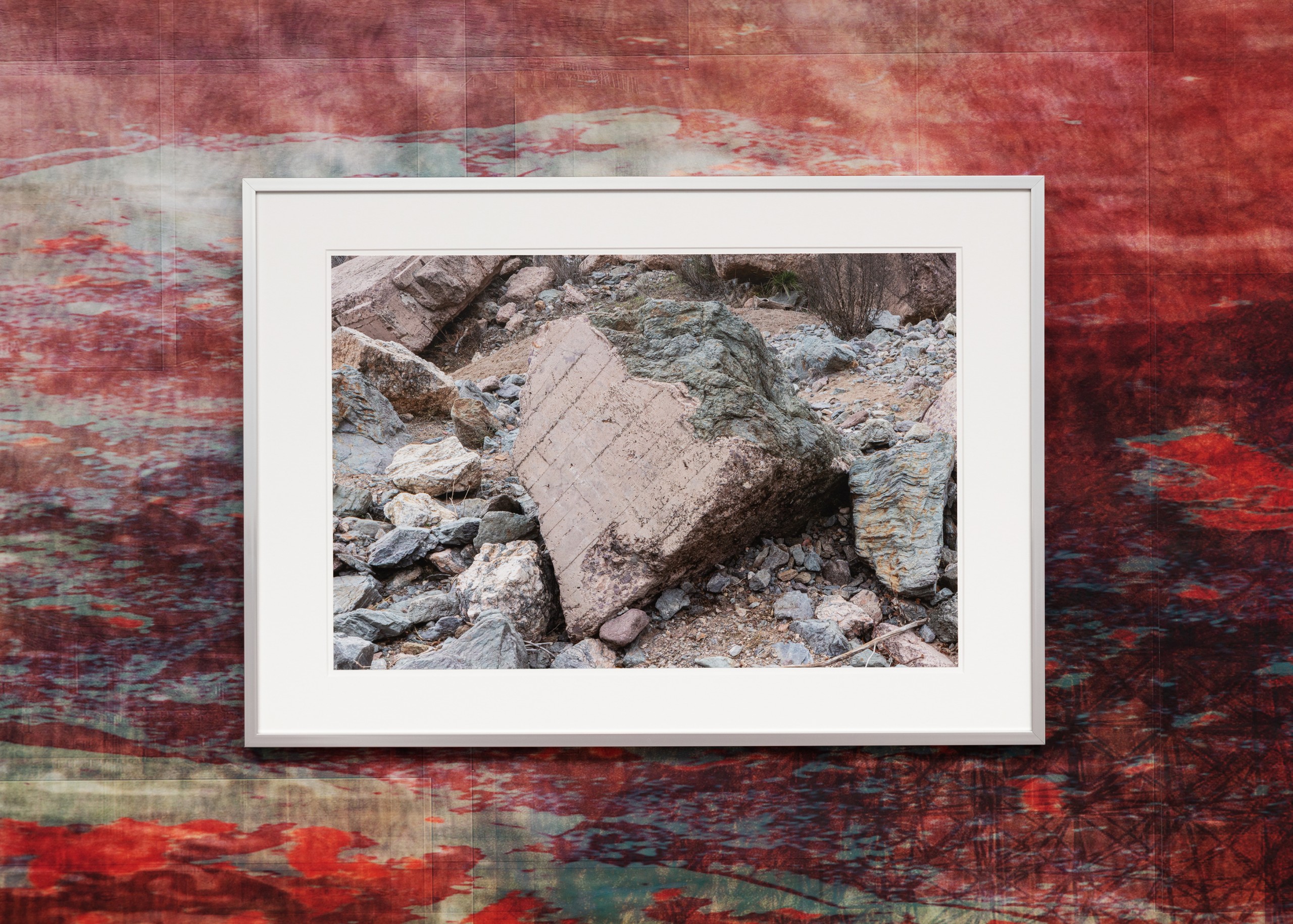Towards is pleased to presented The Machine Eclipsed by the Station, an exhibition by Simon Shim-Sutcliffe that is part of Scotiabank Contact Photography Festival.
An exhibition text by writer and historian Emily Doucet follows.
The Machine Eclipsed by the Station
by Emily Doucet
Simon Shim-Sutcliffe’s The Machine Eclipsed by the Station presents a new installation by the Canadian artist based in Frankfurt am Main, Germany. The exhibition space features a large, red, psychedelic mural overlaid with framed photographs of concrete remnants from the ruins of the Malpasset Dam. Together, the works trawl the images and objects that have facilitated economies of extraction, past and present, metonymically mimicking the infrastructures of capital.
The 36-foot-long mural Stigmatic Vistas (2023) is composed of densely layered digital images, bringing together satellite views with visuals scraped from Google image searches, including chronophotographic studies by the nineteenth-century French scientist Etienne-Jules Marey, and maps of intercontinental underwater cables, among others. The audience is eclipsed by the installation’s scale, both in terms of the image format—designed to mimic ultra-wide Panavision films, used to dramatic effect in Westerns or military epics—and the expansive pool of images from which Shim-Sutcliffe draws his source material.
Sitting atop the mural’s sea of red are images from another series, titled Concrete Atlantis (2022). The Malpasset Dam on the Côte d’Azur collapsed on December 2, 1959, killing hundreds of people in the resulting flood. After the disaster, it was determined that a tectonic fault in the rock base underneath the dam had caused the collapse, potentially the result of a faulty geological survey. After the calamitous accident and the ensuing flood, the concrete structure of the dam no longer blocked the view along the river. However, Shim-Sutcliffe’s photographs of the dam’s remains deny viewers a glimpse of any such vista, lingering instead on torn concrete and exposed re-bar, evidence of the destruction caused by the dam and its trespass on the landscape.
As an artist, Shim-Sutcliffe does not seek to represent infrastructure, but instead creates maps and indexes of its forms. An index is only a trace, and a map only one way of representing the world. In his one-paragraph short story “On Exactitude in Science” (1946), Jorge Luis Borges describes a shifting allegiance to the power of map-making as a means of world-knowing, describing an empire in which “the Cartographers’ Guilds struck a Map of the Empire whose size was that of the Empire.” Later generations, writes Borges, were not so easily entranced by the data gathered in the form of maps. Seeing that the “vast Map was Useless,” they left the maps of their forebears to ruin, languishing in the desert. The works included in The Machine Eclipsed by the Station meditate on this iconoclasm-by-abandonment by reorienting our experience of utilitarian images and architectures.
The Machine Eclipsed by the Station is an intimate portrait of the practice of remote sensing. The wall-length installation combines an outmoded, expansive, and experiential cinematic format with the billboard-like scale of commercial advertising—a thick sludge of information dredged from collections of satellite data and Google images offer a peculiar site of contemplation. By recontextualizing this information, Stigmatic Vistas de-instrumentalizes the spectral data gathered by satellites of the earth. As if registering a different bandwidth, the relics of infrastructural collapse captured in Concrete Atlantis are the stigma that pierce Shim-Sutcliffe’s amalgam of past attempts to create coherent images of the world. In the exhibition space, these images and infrastructural forms can no longer assess the terrain of new development or stop the flow of a river—they are use-less, kaleidoscopically reconfigured to register a different system of meaning and value.
–
Emily Doucet is a writer and historian of photography and visual culture, currently based in Tiohti:áke/ Montréal.
